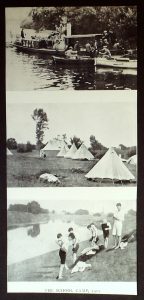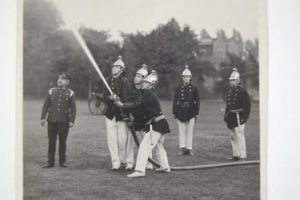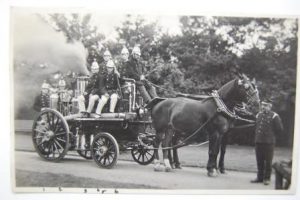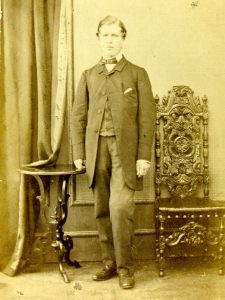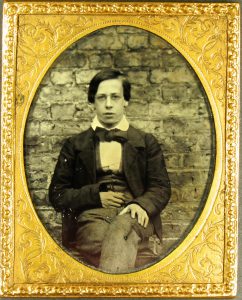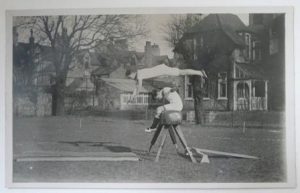Thanks again to Claire for researching this post.
It has to be said that reading personal accounts from Old Scholars has been a pure delight. Some accounts of time spent here were heart-warming, some thought provoking, some showing the variety of skills and experiences learnt from and some truly hilarious. We have captured some of those for you here – as we work through the Register there will be many more stories to tell!
Charles Heber Dymond (Bootham 1903-06)
“I worked ‘til about 21 years old in N.E.R. Locomotive shops at Gateshead and Darlington in the drawing offices of my fathers firm Vaughn & Dymond. I went out to San Paulo, Brazil as Assistant Manager to Anglo-Brazilian Forging, Steel Structural & Imparting Co. In 1912 I returned to the office at Vaughn & Dymond. Hobbies: Locomotive model building, cycling, tennis and motoring.
Alfred Russell Ecroyd (Bootham 1856-60)
In 1909 introduced the idea of total abstinence for the individual and prohibition for the State into Spain by distribution of some 60,000 temperance pamphlets by post and by hand throughout all the 49 provinces of Spain. All the 15,000 Doctors of Spain received one or more of these tracts in 1909, resulting in a revolution of medical practice in Madrid, Barcelona and other places where previously it was the fashion to order wine for nearly every ailment, to a general custom of ordering their patients to abstain, at all events during medical treatment. In one town this change reduced the mortality in 1909 to one-half of any previous year from 28 per 1000 to 14.5. In 1910, founder and first Editor of “El Absetmio” a quarterly temperance newspaper 40,000 copies of which are annually distributed gratuitously throughout Spain by the Spanish Anti-alcohol League, which he founded in 1911: In 1904-1906 in conjunction with the Wisbech Peace Society – the translation and distribution of 10,000 Peace tracts throughout all the provinces of Spain: Hobbies – National History, especially entomology, genealogy, meteorology, drawing and painting.
Walter Henry Fox (Bootham 1868-69)
[I feel his wife should firstly be given special mention for – Children: Frederick Neidhart (1881), Marie (1882), Elsie Henrietta (1883), Gertrude Emma (1885), Walter Egbert (1886), Dorothy Isabel (1887), Howard Neidhart (1888), Margaret Newsom (1890), John Prideau (1893), Amy Gertrude (1895), Helen Sophie (1897).] Walter has recollections of games, pranks, etc., such as heating old coppers and throwing them from the bedroom window to the old watchman: sticking pins in Junior Master’s alarm clock so that he overslept himself: Grateful recollection of special trouble taken by Fielden Thorp in his writing and reading.
Alexander Grace (Bootham 1853-54)
Together with William S Clark built a camera which was the first introduction of photography as a hobby in school : He says “The only time we were allowed off the premises (unless we had special leave to go into town) was Wednesday morning once a month, when we had a half-holiday walk, under care of the teachers, which was mostly devoted to our hobbies: Wednesday afternoons were given for our own useful employment in the school room : Before going into York I was very fond of making models; one Wednesday afternoon I was building “Aspley House” in cardboard, one of the teachers asked me if I thought it was a good way of employing my time, which stopped me, and I never did any modelling afterwards. We were not allowed newspapers – the Russian War was going on at the time – our head teacher, Till Adam Smith, used to read us extracts, keeping is posted up in what was going on”. [The headmaster at this time was in fact John Ford.]
